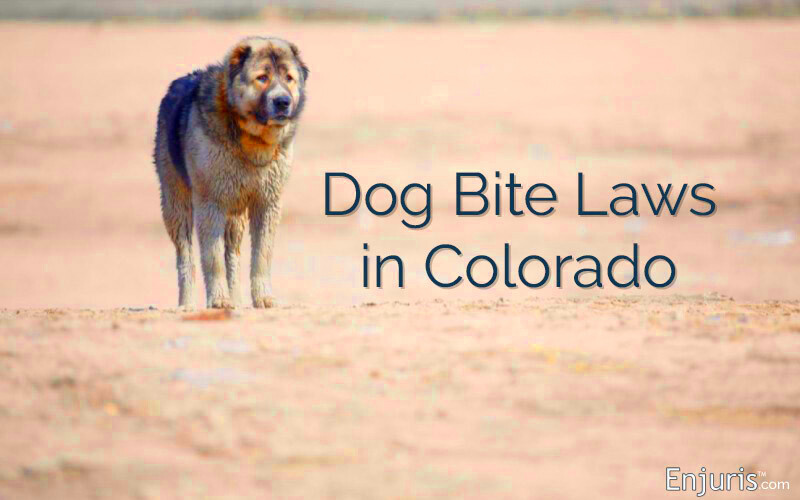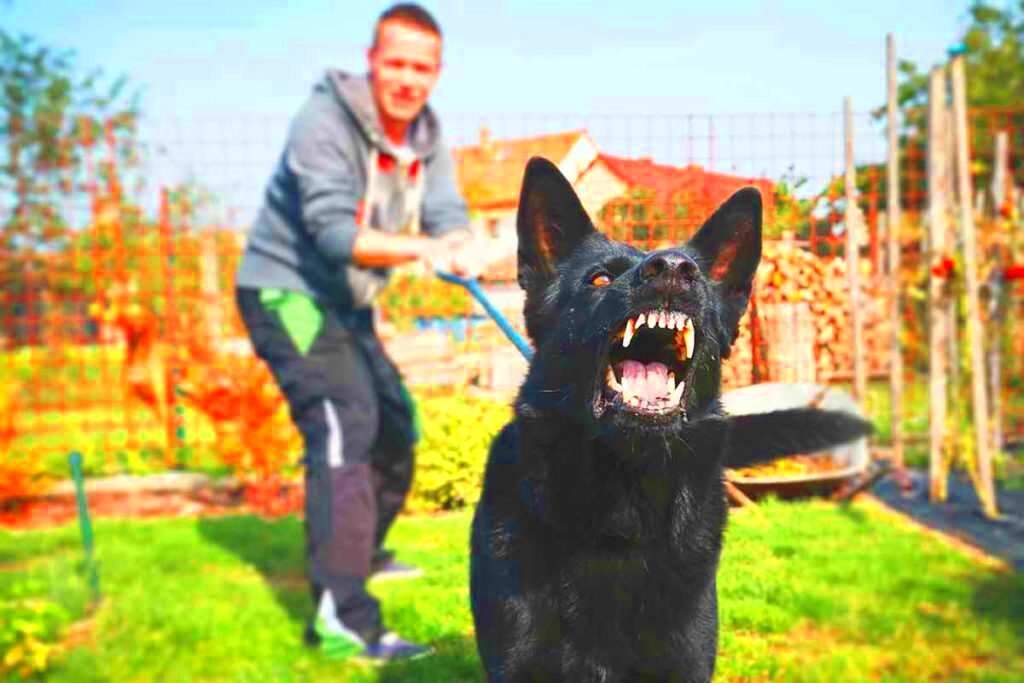Dog Bite Law in Colorado and Protecting Victims’ Rights
Dog bite laws in Colorado are designed to protect victims and hold dog owners accountable. When a dog bites someone, the owner may be responsible for the injuries caused. Understanding these laws is crucial for both victims and dog owners to navigate legal issues effectively. This blog post will explore various aspects of dog bite law, including liability, types of injuries, and what steps to take if bitten. Being informed can help victims seek justice and ensure that responsible pet ownership is promoted.
Understanding Liability in Dog Bite Cases

Liability in dog bite cases refers to who is legally responsible for the injuries suffered by the victim. In Colorado, dog owners can be held liable under several circumstances:
- Strict Liability: Colorado follows a strict liability rule, meaning that if a dog bites someone, the owner is liable for damages, regardless of whether the owner knew the dog had a propensity to bite.
- Negligence: If the owner was negligent in controlling the dog or failed to take reasonable precautions, they may be held responsible for the injuries.
- Provocation: If the victim provoked the dog, the owner might not be held liable. It is essential to determine the events leading up to the bite.
Additionally, landlords and property owners may share liability if they failed to maintain safe premises. Understanding these aspects can help victims assess their situation and determine the best course of action.
Types of Dog Bite Injuries and Their Impact

Dog bites can lead to various injuries, and the severity can greatly impact the victim’s life. Here are some common types of injuries:
- Minor Injuries: These may include scratches or small puncture wounds, which can still be painful and require medical attention.
- Moderate Injuries: Lacerations and deeper puncture wounds can lead to infections or scarring and may require stitches.
- Severe Injuries: These include fractures, nerve damage, and severe soft tissue injuries, often necessitating extensive medical treatment and rehabilitation.
- Psychological Impact: Beyond physical injuries, victims may experience anxiety, post-traumatic stress disorder (PTSD), and fear of dogs, which can affect their quality of life.
Recognizing the full extent of injuries is vital for victims to seek appropriate medical care and pursue fair compensation. Understanding the impact of these injuries can also assist in advocating for more responsible dog ownership and community safety.
Legal Options for Dog Bite Victims

If you’ve been bitten by a dog in Colorado, it’s essential to know your legal options. Victims of dog bites have several avenues to pursue compensation for their injuries. Understanding these options can empower you to take action and seek justice.
- Personal Injury Claim: Most dog bite cases fall under personal injury law. You can file a claim against the dog owner’s insurance for medical bills, lost wages, pain and suffering, and other damages. Documenting your injuries and their impact on your life will strengthen your case.
- Negotiation: Often, cases can be settled through negotiation without going to court. It’s crucial to negotiate with the insurance company effectively, focusing on the extent of your injuries and associated costs.
- Litigation: If negotiations fail, you may need to file a lawsuit. This involves more legal complexities and can take time. Having a lawyer experienced in dog bite cases can significantly improve your chances of success.
- Consulting with a Lawyer: Before taking any legal steps, consult with a lawyer specializing in personal injury or dog bite cases. They can help you understand your rights, the likelihood of a successful claim, and the potential compensation you might receive.
Each case is unique, so considering all your legal options and taking timely action is crucial for securing your rights and compensation.
Steps to Take After a Dog Bite Incident
Experiencing a dog bite can be traumatic and overwhelming. However, taking the right steps immediately after the incident is essential for your health and any potential legal claim. Here’s what you should do:
- Seek Medical Attention: Regardless of the injury’s severity, seek medical care as soon as possible. This ensures you receive proper treatment and documents your injuries.
- Document the Incident: Take pictures of your injuries and the location where the bite occurred. If possible, get photos of the dog and its owner. This evidence can be vital for your case.
- Gather Witness Information: If there were witnesses to the incident, collect their contact information. Their statements can support your account of what happened.
- Report the Incident: Notify local authorities or animal control about the dog bite. This report can be crucial for legal purposes and ensuring the dog is properly assessed.
- Consult a Lawyer: Reach out to a lawyer who specializes in dog bite cases. They can guide you on the next steps, help you understand your rights, and assist in filing a claim if necessary.
Following these steps can protect your health and strengthen your legal position if you choose to pursue compensation.
Statute of Limitations for Filing a Claim
In Colorado, there are time limits for filing a claim after a dog bite incident. This time frame is known as the statute of limitations. Understanding this timeline is crucial to ensure you don’t miss the opportunity to seek compensation.
For dog bite cases, the statute of limitations is typically two years from the date of the incident. Here’s what you need to know:
- Importance of Timely Action: Acting quickly is essential, as evidence can fade, and witnesses may forget details. Filing a claim promptly can significantly enhance your chances of success.
- Exceptions: In some cases, exceptions may apply that could extend the filing period. For instance, if the victim is a minor, the clock may not start until they turn 18.
- Consulting with a Lawyer: A lawyer can help you understand how the statute of limitations applies to your case and ensure you meet all necessary deadlines.
Being aware of the statute of limitations helps you take action within the necessary time frame, ensuring your rights are protected.
Role of Insurance in Dog Bite Cases
Insurance plays a crucial role in dog bite cases, offering financial support for both victims and dog owners. Understanding how insurance works in these situations can help you navigate the aftermath of a dog bite more effectively.
Typically, homeowners or renters insurance policies cover dog bites. Here’s how insurance can come into play:
- Coverage for Victims: If you are bitten, the dog owner’s insurance may cover medical expenses, lost wages, and pain and suffering. It’s essential to document your injuries and any related costs to present a strong claim.
- Liability for Owners: Dog owners should ensure their insurance policy includes liability coverage for dog bites. This coverage helps protect them financially if they face a lawsuit or need to compensate the victim.
- Claims Process: After a dog bite, victims can file a claim with the dog owner’s insurance. The insurance company will investigate the claim, assess the injuries, and determine the compensation amount based on the policy limits and the circumstances of the bite.
- Negotiation with Insurers: Often, negotiations occur between the victim and the insurance company. Having a lawyer can be beneficial, as they understand the process and can help advocate for a fair settlement.
Ultimately, understanding the role of insurance can clarify what to expect after a dog bite and assist both victims and owners in managing potential financial implications.
Preventing Dog Bites and Ensuring Safety
Prevention is key when it comes to dog bites. Taking proactive measures can significantly reduce the chances of such incidents and ensure the safety of both dogs and people. Here are some essential strategies for preventing dog bites:
- Responsible Pet Ownership: Owners should train their dogs and socialize them from a young age. Understanding canine behavior and body language helps prevent aggressive situations.
- Supervision: Always supervise interactions between dogs and young children. Teach children how to approach and interact with dogs safely.
- Secure Your Property: Ensure your yard is fenced securely to prevent dogs from escaping. If a dog gets loose, it may feel threatened and react aggressively.
- Recognizing Warning Signs: Understand signs that a dog may feel threatened or anxious, such as growling, baring teeth, or stiff body posture. If you see these signs, give the dog space.
- Community Education: Promote awareness in your community about dog safety and responsible pet ownership. Educating others can create a safer environment for everyone.
By implementing these safety measures, we can help reduce the risk of dog bites and create a more harmonious environment for both pets and people.
Frequently Asked Questions
When it comes to dog bite laws and the aftermath of an incident, many questions may arise. Here are some frequently asked questions that can help clarify common concerns:
- What should I do if I am bitten by a dog? Seek medical attention, document your injuries, gather witness information, and report the incident to authorities.
- Can I sue for a dog bite? Yes, if you have suffered injuries, you can file a claim against the dog owner for medical expenses, lost wages, and pain and suffering.
- Are dog owners always liable for bites? Not necessarily. Factors such as provocation or the victim’s behavior may affect liability. However, Colorado follows strict liability laws, making owners responsible for bites regardless of prior behavior.
- How long do I have to file a claim? In Colorado, the statute of limitations for filing a dog bite claim is typically two years from the date of the incident.
- Does insurance cover dog bites? Yes, most homeowners or renters insurance policies include liability coverage for dog bites, helping to cover the costs associated with the victim’s injuries.
If you have more questions or need assistance, consulting with a lawyer experienced in dog bite cases can provide personalized guidance.
Conclusion and Call to Action
Understanding dog bite law in Colorado is essential for both victims and dog owners. Victims must know their legal options and the steps to take after an incident to ensure their rights are protected. Dog owners, on the other hand, should take proactive measures to prevent bites and be aware of their responsibilities under the law. If you or someone you know has been affected by a dog bite, don’t hesitate to take action. Consult with a legal professional to discuss your situation, understand your rights, and explore potential compensation. By staying informed and proactive, we can promote safer communities for both people and pets.


